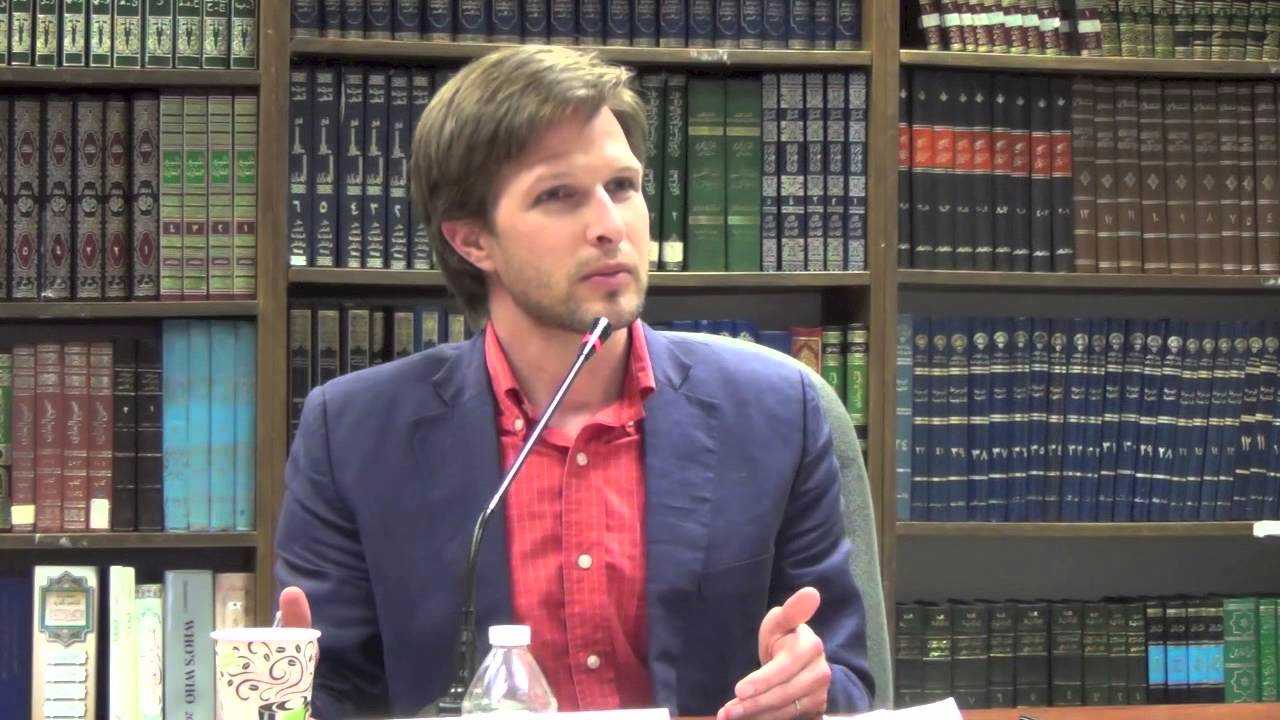 WASHINGTON — Concerns are being expressed after audio has surfaced of a Muslim Georgetown University professor outlining that slavery and sex without consent is not always wrong as defined in Islamic culture.
WASHINGTON — Concerns are being expressed after audio has surfaced of a Muslim Georgetown University professor outlining that slavery and sex without consent is not always wrong as defined in Islamic culture.
Professor Jonathan Brown recently lectured at the International Institute of Islamic Thought, where he delivered a message on “Islam and the Problem of Slavery.” The lecture, which included a Q & A period, can be heard in full here. Q & A begins at approximately 51:00.
Brown stated in the discussion that what some might call slavery in Islam differs from what is recognized in the historical American context, because it was “rarely racialized” and “slaves had a huge regime of rights.” He said that some “slaves in numerous circumstances became the actual rulers or were used as the administrative elite.”
“I think if you took the Sharia understanding of slavery and even the general practice of slavery in Islamic civilization, I don’t think it’s comparable at all to plantation chattel slavery in the Americas. It’s just not comparable at all,” he asserted.
“In general, you don’t find the brutality that you see in American slavery. As far as I can tell, generally it is simply not very common. Slaves in Islamic civilization were mostly investments,” Brown later stated. “It was like buying a rental property. So, you would say, ‘Okay, slave. You’re a good carpenter. Go out and do work as a carpenter and every day you give me, like, 30 percent of your pay.'”
Brown explained to those gathered that he believes people should focus more on the conditions of the workers rather than nitpicking over whether someone is technically defined as a slave or not.
“If you’re Muslim, the prophet of God had slaves. He had slaves. There’s no denying that. Was he—are you more morally mature than the prophet of God? No, you’re not,” he said to one attendee who had asked a question about the matter.
“I think sometimes we sort of fettishize the word slavery—we morally fettishize it—when we should actually be looking at the conditions of people,” Brown contended.
“Slavery cannot just be treated as a moral evil in and of itself because slavery doesn’t mean anything,” he also outlined. “The moral evil is extreme forms of deprivation of rights and extreme forms of control and extreme forms of exploitation. I don’t think it’s morally evil to own somebody because we own lots of people all around us, and we’re owned by people.”
Later in the session, an attendee asked a question about the concept of having sexual relations with concubines, and Brown replied that while consent is considered to be the legal standard in American culture, it was not so throughout much of world history.
“It’s very hard to have this discussion because we think of, let’s say in the modern United States, the sine qua non of morally correct sex is consent. We think of people as autonomous agents. Everybody’s an autonomous agent and it’s the consent of that autonomous agent that makes a sexual action acceptable. Correct?” he stated.
“[But] for most of human history, human beings have not thought of consent as the essential feature of morally correct sexual activity,” he said. “And second, we fettishize the idea of automomy to the extent that we forget, again, who is really free? Are we really autonomous people? What does autonomy mean?”
Brown then provided an example to outline his point, contrasting the plight of a woman captured as a slave and a woman whose family has expectations about the life she marries into.
“What’s the difference between someone who is captured in a raid in the steppes of Central Asia, brought to Istanbul’s slave market, sold to an owner—who, by the way, might treat her badly; might treat her incredibly well,” he outlined. “She’s going to bear him children. She’s going to be a free woman. She’s going to be the mother of his children. If he’s high status, she’s going to be high status. If he dies, she might be a very desirable wife.”
“What’s the difference between that and some woman who’s a poor baker’s daughter who gets married to some baker’s son without any choice because no one expects her to have any choice?” Brown asked. “And that baker’s son might treat her well; he might treat her horribly.”
“The difference between these two people is not that big. We see it as enormous because we’re obsessed with the idea of autonomy and consent, would be my first response,” he asserted. “It’s not a solution to the problem. I think it does help frame it.”
Some are now expressing deep concern over Brown’s comments, including Ian Miles Cheong of HeatStreet, who opined, “Had Prof. Brown’s words been spoken by a practicing member of any other religion, they would’ve lost their jobs and [have been] shunned out of the academic world.”
Become a Christian News Network Supporter...


